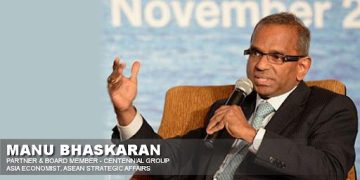Remote work is no longer a pandemic-era trend or a Silicon Valley experiment—it has become a seismic shift that is redrawing the map of global labor, redefining productivity, and rewiring urban and economic infrastructure. What began as an emergency response to COVID-19 lockdowns has matured into a sustainable model embraced across industries and continents. As businesses recalibrate and governments rethink labor policies, the rise of remote work is creating ripples that extend far beyond the confines of video conferencing platforms and home offices. It is transforming where people live, how cities function, how companies hire, and how economies grow or stagnate.
Introduction: The Long-Term Impact of Remote Work on Economies Around the World
The normalization of remote work marks one of the most profound global labor transitions since the Industrial Revolution. Unlike past technological leaps that were localized or gradual, this transition occurred nearly overnight and spanned every continent and industry—from banking in New York to software development in Bangalore. The question now is not whether remote work will last, but how it will shape the future.
From a macroeconomic perspective, remote work is not just a labor issue—it is a productivity, trade, real estate, and public policy issue. It changes who participates in the economy, how income is distributed, and which cities or countries become economic hubs. The global labor market has effectively flattened, allowing companies to tap into talent pools previously limited by geography. This democratization of work access may foster inclusion—but it also introduces new challenges, including wage deflation, regulatory fragmentation, and infrastructure inequality.
While much of the early analysis of remote work focused on corporate flexibility and employee wellness, the current conversation is shifting toward its structural implications for global economies. Economists, policymakers, and business leaders are beginning to recognize that remote work is not a temporary shift—it is a foundational realignment with enduring economic consequences.
Economic Shifts: How Industries and Cities Are Adjusting to the New Normal
Industries have responded to the remote work boom with varying degrees of enthusiasm and success. Sectors such as technology, finance, professional services, and digital marketing have adapted quickly, finding that distributed teams can maintain—if not improve—productivity while cutting costs. Tech giants like Google, Meta, and Salesforce have embraced hybrid models, reconfiguring office space and workflows around asynchronous collaboration. Even traditionally office-bound sectors like law and consulting are adopting remote tools as part of their standard operating models.
On the other hand, sectors heavily dependent on in-person activity—hospitality, manufacturing, construction, and healthcare—have seen less transformation. Yet even in these fields, remote-enabled functions like customer service, HR, and IT support are increasingly outsourced to distributed teams. This divergence has created a two-speed recovery in global economies: one driven by remote-enabled, knowledge-based industries and another constrained by physical presence.
Cities are undergoing parallel shifts. Urban centers built around the daily influx of office workers are facing existential questions. From New York to London to Tokyo, commercial real estate vacancies are rising while foot traffic and spending in business districts decline. Small businesses that relied on commuter flows—cafes, dry cleaners, fitness studios—are struggling or shuttered. Municipal tax bases, often reliant on commercial activity, are shrinking, forcing cities to rethink public spending and infrastructure priorities.
But while traditional economic hubs may be losing their gravitational pull, new ones are emerging. Secondary cities and rural regions are witnessing population booms as remote workers seek affordability, space, and quality of life. Countries such as Portugal, Estonia, and Costa Rica have launched “digital nomad visas” to attract remote professionals and stimulate local economies. In the U.S., cities like Austin, Boise, and Raleigh are becoming tech magnets, reshaping regional growth narratives.
These shifts underscore a rebalancing of global economic geography. Remote work allows labor and capital to move more freely, decentralizing prosperity—but it also risks deepening divides between connected and disconnected regions, digitally skilled and unskilled workers, and flexible and rigid economies.
Opportunities and Challenges: What Companies and Governments Need to Consider
For companies, remote work offers a rare opportunity to rethink every element of organizational design—from hiring and compensation to leadership and culture. One of the most profound changes has been access to a global talent pool. Firms are no longer limited to hiring within a 50-mile radius of headquarters; they can recruit across time zones and continents. This can lead to cost savings, increased diversity, and resilience through distributed operations.
However, this access also presents challenges. Pay equity becomes complex when employees in different countries or cities earn different wages for the same work. Communication and collaboration must be intentionally designed, not left to serendipitous hallway chats. Security risks rise as company data spreads across personal devices and unsecured networks. And measuring performance requires new metrics, emphasizing outputs over hours logged.
From a government standpoint, remote work introduces both opportunity and uncertainty. On the one hand, it can reduce urban congestion, lower emissions, and create new economic zones. On the other, it threatens to erode tax revenues, strain public transportation budgets, and challenge traditional models of labor law and regulation.
National governments are grappling with questions of jurisdiction and taxation: Where is an employee taxed if they live in one country and work for a company based in another? How should labor rights be enforced for remote contractors in foreign jurisdictions? These are not trivial concerns—they strike at the heart of how modern economies are structured.
Investment in digital infrastructure becomes paramount. Countries that fail to provide high-speed internet, cybersecurity, and digital literacy risk being left behind. Education systems must evolve to prepare future workers for remote-first careers. Social safety nets need rethinking to accommodate gig and remote workers who often fall outside traditional protections.
Workplace inclusion is another consideration. While remote work can increase access for disabled individuals, caregivers, and those in remote areas, it can also isolate workers without reliable technology or quiet workspaces. Companies and governments alike must address this digital divide to ensure remote work does not exacerbate inequality.

The Post-Pandemic Future: How Remote Work Might Permanently Alter Global Economic Structures
As remote work matures, its implications for global economic structures become more pronounced. One of the most significant changes may be the redefinition of the “firm.” Instead of being physical headquarters with defined borders, companies may increasingly become digital networks—fluid, decentralized, and project-based. This could accelerate the rise of the platform economy, where workers engage with multiple employers simultaneously, and corporate loyalty gives way to task-oriented engagement.
The labor market, too, is being reshaped. Traditional employment contracts may give way to flexible arrangements, including freelancing, part-time engagements, and cross-border collaborations. In this scenario, labor laws, retirement systems, and even immigration policies must evolve to accommodate a more fluid workforce.
Global trade patterns may also shift. If knowledge work can be done from anywhere, countries with favorable time zones, lower costs, and high digital skills may become exporters of labor in ways previously impossible. For example, remote IT teams in Nigeria or graphic designers in Argentina could compete directly with firms in San Francisco or Berlin, flattening labor hierarchies and redistributing income.
Urban economics will not be the same. Megacities that once thrived on clustering effects may lose their dominance, replaced by a more distributed model of innovation. This could ease housing pressures and improve quality of life for millions—but it also requires a reimagining of infrastructure, public services, and economic planning.
Finally, the psychological and social fabric of work is evolving. The office, once the primary arena for human interaction, is being replaced by digital communication platforms. This raises questions about employee engagement, mentorship, and mental health. Hybrid models, which blend remote and in-person work, may offer a solution—but they, too, require intentional design and continuous experimentation.
Looking ahead, remote work will not remain static. It will evolve alongside technology, geopolitics, and cultural expectations. Artificial intelligence, the metaverse, and augmented reality may further expand what “working remotely” means, enabling immersive collaboration across continents. Governments and businesses that adapt proactively—investing in infrastructure, rethinking policy, and designing inclusive systems—will be best positioned to thrive in this new era.
Conclusion: Remote Work as a Permanent Force in Global Economic Realignment
Remote work is not a fleeting phenomenon; it is a permanent feature of the 21st-century economy. It has already begun to reshape industries, cities, and national policies, and its influence will only deepen in the years ahead. By decentralizing labor and digitizing the workplace, it offers unprecedented flexibility—but also poses complex challenges that demand strategic thinking and bold action.
For businesses, remote work is an opportunity to redefine culture, access talent, and build resilient systems. For governments, it is a test of agility, innovation, and inclusivity. For workers, it is a promise of autonomy and a challenge to remain connected and competitive in a dispersed world.
In the coming decades, the economies that thrive will not be those that resist the shift, but those that embrace and shape it—building new models of growth, governance, and global collaboration that reflect the realities of a world where work is no longer a place, but a state of connection.



































